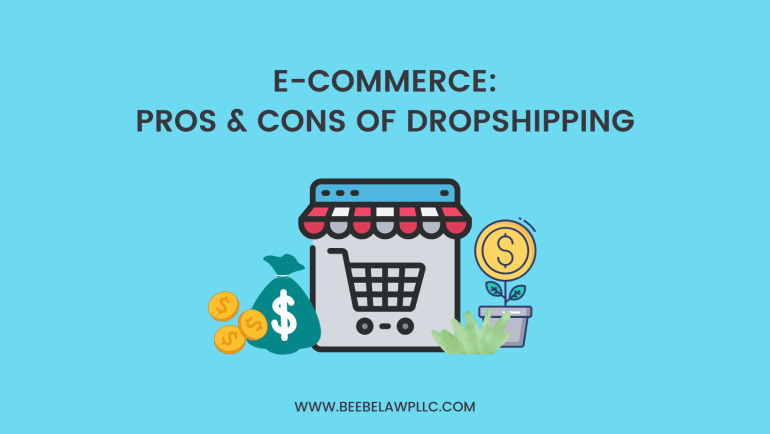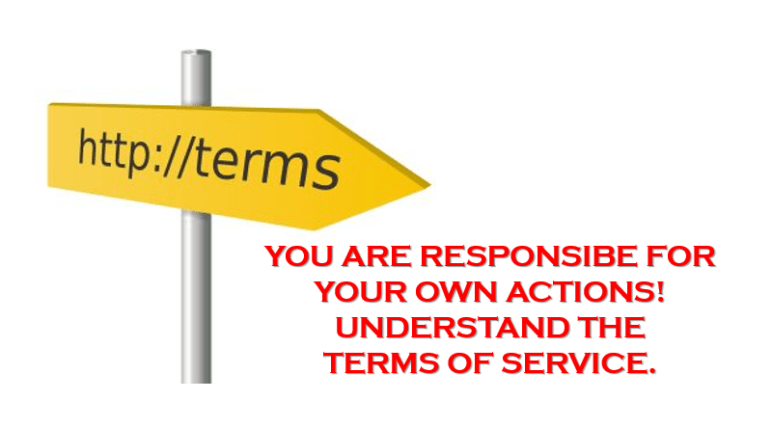Arizona recently passed a new anti-SLAPP law, 2022 Ariz. HB 2722 (it’s not in effect yet and won’t be for a few months at least) and while a colleague of mine and are are working on a more comprehensive discussion about anti-SLAPP and this new law specifically (which I will link here once done and/or you can always follow me here or on various social media to get the latest) as I was writing the initial draft of that article this week I became more and more frustrated. Anti-SLAPP laws without a mandatory award of attorneys fees and costs to the prevailing party of such motion is a hindrance to the access to justice for real victims of SLAPP suits and chills free speech. How? Let me elaborate.
I should preface this with the fact that I spent the better part of a decade working as in-house counsel of an interactive online forum and I’ve pretty much seen it all when it comes to true victims sharing their honest stories (and being threatened because if it) and bad actors using the Internet as a source of revenge (where people are desperate to make the harassment stop and to remove untruthful, hurtful, information from the platform). As such, my opinion is through a lens of having heard countless stories from all sides.
Generally speaking (obviously there are always outliers) those who lawfully criticize wrongdoers, especially online, do so because they don’t have the means to file suit regarding the experience that led to the criticism. Complaining online is their remedy. If those being criticized are powerful and/or wealthy, it’s really easy to say “Take that content down or I’ll sue you.” Many Americans are living paycheck to paycheck, but even if they are comfortably above that, they often cannot afford to be sued. Just look at how long it took to get through the Depp/Heard case. Granted, that was where two parties were heavily pushing back on who was right … but this is not unlike many civil cases. In fact, the behaviors exhibited in that court room and on display for the watching world to see is not all that unusual for litigating parties. The only difference there is that it was televised and people care enough about celebrity dirt to watch the case unfold on live television/online streaming.
But if you aren’t a celebrity or wealthy individual … if you cannot afford to fight back through expensive lawyers, even if you’re in the right … what do you do? Chances are you begrudgingly remove the content to save your own pocket book, or worse, lose a legal action and end up with a, albeit by default, judgment against you if you cannot, for whatever reason (and there are many reasons) don’t appear in a case. Ahh, yes … the threat of a SLAPP suit is indeed a huge and powerful sword.
But what happens if you cannot remove the content because the website’s terms of service prohibit it, or such posting has been scraped and put up elsewhere such that you do not have control over it? Oh yes, this happens all the time online. People don’t read Terms of Service and unfortunately, copy cat websites scrape content that isn’t theirs. In this instance, chances are, you will get sued anyway. Why? Because it’s worth it for the wealthy/powerful to try to get a court order to remove the content from the internet and they can’t do that without a suit. After all, many platforms will honor court orders for content removal even if they are obtained by default.
And in a lot of ways, this makes sense. Especially when bad actors/defamers hide behind anonymous accounts and/or are in foreign countries that make pursuing the perpetrator cost prohibitive or near impossible for real victims. Real victims need relief and this is one such pathway to remedy. On the other hand, for the truth tellers, it can be hard to stand up to wealthy/powerful bad actors when faced with a lawsuit. Those who speak up honestly can get the short end of the stick. If a suit is filed, and they can’t afford to defend against it, are they to be victimized yet again by default? I know it happens. I’ve seen it happen. Let me give you an example.
Imagine with me for a moment that you are a business owner of a new start-up company called Cool Business, LLC operating in Arizona, and you want to engage the services of a advertising company. Your friend, Tim, gives you the name of Great Advertising Co. based out of New York. A New York advertising company sounds fancy and you think they will probably do a far better job than anyone here in little Arizona so you reach out to them. The conversation goes great, they send you a basic contract to sign for the work to be done for Cool Business, LLC and require a $6,000.00 deposit so they can get started on the work and another $4,000.00 in 90 days for a total contract of $10,000.00 over three months. You skim the agreement, gloss over the headings of the boilerplate terms (because they’re all the same, right?), sign it and send them the $6,000.00. Everything goes great at first, but months into the relationship, and dozens of calls later, you realize that Great Advertising Co. is flakey. They aren’t delivering the services on time, there is always an excuse for why the work isn’t done, but when the 90 days hits, they still ask for their additional $4,000.00 pursuant to the contract. The business relationship at this point has soured. Great Advertising Co. demands their additional $4,000.00 under the contract, which you refuse to pay, and you instead demand a refund of your $6,000.00. Great Advertising Co. refuses to refund you the $6,000.00. Pissed off, you take your story to your favorite business attorney in Arizona and she reviews your contract and advises you that while you may have a breach of contract claim, the terms of your contract say that you agree to litigate any matters stemming from the agreement in a court in New York and that because the contract is with Cool Business, LLC that you’d have to hire a lawyer, in the state of New York, to handle the matter for you because businesses have to be represented by a lawyer in the court that you’d have to file in. Knowing that New York lawyers can be very expensive, you decide it’s not worth the hassle and to cut your losses. Understandably being upset, however, you take to the Internet to tell everyone you know how, truthfully, Great Advertising Co. ripped you off and you explain in detail what happened. You post your reviews to Google, Yelp, Facebook and any other place you can find to help spread the word about these unscrupulous business tactics and you leave it at that. Ten months later you receive a letter from a Great Advertising Co.’s New York lawyer telling you that you need technically still owe the $4,000.00 under the contract and that Great Advertising Co. doesn’t appreciate the negative reviews and demands that you immediately remove them or they will file a lawsuit against you for defamation. You ignore the letter because you know that you have a good breach of contract case and the First Amendment on your side because what you said was 100% the truth and you know, after talking to your favorite defamation attorney a few years back, you know that the truth is a defense to a claim of defamation. A day prior to the one year anniversary of your pissed off customer online posting tirade you are served with a complaint, based out of New York for defamation. You’ve watched the Johnny Depp and Amber Heard defamation trial. You saw how long that case was drug out and you know that you don’t have the funds to pay an attorney to fight for your rights in New York. You didn’t even have the funds to hire a New York attorney to bring a breach of contract case against Great Advertising Co. to try and get your $6,000.00 back. As such, feeling defeated, and without talking to your favorite defamation attorney again, you just ignore the complaint. You figure, what’s the worst that can happen. Great Advertising Co. obtains a default judgment against you individually with an order to take down the content and the judge awards $2,500.00 in damages.
Now, this entire hypothetical, while obviously facts have been changed and such, is based off a true story of what one individual experienced and how these types of situations can go south in a hurry. There are countless similar stories just like this out there. Good folks are victimized not just once, by the initial acts, but twice in some instances like in this hypothetical. But this is where good anti-SLAPP laws come into play.
Anti-SLAPP laws are designed to fight back against those who file lawsuits just to try and silence their critics, but without the promise of attorney fees and costs for the work, victims of little means are hard pressed to find lawyers willing to help (hence the hinderance to access to justice). The sad truth is that most lawyers (like most professions) cannot afford to work for free – being a professional is expensive and it’s not getting any cheaper. When anti-SLAPP laws include such fee provisions, it’s a lot easier for attorneys to consider taking on a SLAPP case, with low or no money down, case because they know they will get paid when they win. This is of course presuming it’s a deep pocket that filed the SLAPP in the first place because the reality is a judgment is only worth one’s ability to collect.
When anti-SLAPP laws fail to include such provisions, there is little deterrent to filing a SLAPP suit. Yes, if the little person being picked on has means, maybe they will think twice but that’s not often the case and the SLAPP filers know, and bank on, the litigation causing financial hardship or stress so that the truth teller will simply give in to the demands to remove the content prior to even answering the complaint, thus chilling truthful speech. It’s a powerful tactic. If it wasn’t, there wouldn’t be so many states with anti-SLAPP laws trying to curb such problems in the first place.
As many legal practitioners are painfully aware, it can be very difficult to get a judge to award attorneys fees and costs absent it being statutorily required. So even if you fight against a SLAPP suit, and win, you could still be out tens of thousands of dollars (or more depending on the case) with no guarantee of recovery. As an attorney, when you have to tell potential clients this, you can see the defeat in people’s faces before you even get going. It’s scary. What average person has tens of thousands of dollars laying around to pay to a lawyer to fight for their First Amendment right to free speech?
Would those odds make you excited about standing up for yourself? I think not. If you knew all this, would you be so willing to share with the public honest information about bad actors and you personal experience? I think not.
And this doesn’t just go for complaining consumers, but also for investigative journalists. If you think a random, but bigger company, going after an unhappy customer who got ripped off is bad and complained about it is bad … imagine what a powerful elite will try to do to an investigative journalist trying to uncover some very serious dirty laundry and expose it to the world?
Bottom line, for any anti-SLAPP law to be a true shield, among other things, it must contain, at minimum, a statutory award of attorney fees and costs.
Disclaimer: This is for general information purposes only and none of this is meant to be legal advice and should not be relied upon as legal advice.
#firstamendment #defamation #antiSLAPP #legislation #accesstojustice











